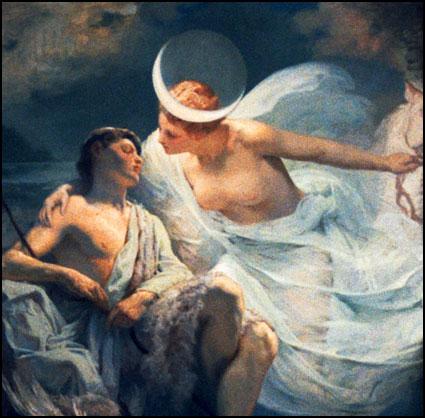|
Losna (mythology)
Losna was the Etruscan religion, Etruscan lunar deity, moon goddess. She is also associated with the oceans and the tides. She is similar to Greek Leucothea. Losna's Roman equivalent is Luna (goddess), Luna. See also *Luna (goddess) References Etruscan goddesses Lunar goddesses {{AncientRome-myth-stub ... [...More Info...] [...Related Items...] OR: [Wikipedia] [Google] [Baidu] |
Etruscan Religion
Etruscan religion comprises a set of stories, beliefs, and religious practices of the Etruscan civilization, heavily influenced by the mythology of ancient Greece, and sharing similarities with concurrent Roman mythology and Religion in ancient Rome, religion. As the Etruscan civilization was gradually assimilated into the Roman Republic from the 4th century BC, the Etruscan religion and mythology were partially incorporated into ancient Roman culture, following the Roman tendency to absorb some of the local gods and customs of conquered lands. The first attestations of an Etruscan religion can be traced back to the Villanovan culture. History Greek influence Greek traders brought their religion and hero figures with them to the coastal areas of the central Mediterranean. Odysseus, Menelaus and Diomedes from the Homeric tradition were recast in tales of the distant past that had them roaming the lands West of Greece. In Greek tradition, Heracles wandered these western areas, d ... [...More Info...] [...Related Items...] OR: [Wikipedia] [Google] [Baidu] |
Lunar Deity
A lunar deity or moon deity is a deity who represents the Moon, or an aspect of it. These deities can have a variety of functions and traditions depending upon the culture, but they are often related. Lunar deities and Moon worship can be found throughout most of recorded history in various forms. Moon in religion and mythology Many cultures have implicitly linked the 29.5-day lunar cycle to women's menstrual cycles, as evident in the shared linguistic roots of "menstruation" and "moon" words in multiple language families. This identification was not universal, as demonstrated by the fact that not all moon deities are female. Still, many well-known mythologies feature moon goddesses, including the Greek goddess Selene, the Roman goddess Luna, and the Chinese goddess Chang'e. Several goddesses including Artemis, Hecate, and Isis did not originally have lunar aspects, and only acquired them late in antiquity due to syncretism with the de facto Greco-Roman lunar deity Selene/Luna. ... [...More Info...] [...Related Items...] OR: [Wikipedia] [Google] [Baidu] |
Leucothea
In Greek mythology, Leucothea (; grc-gre, Λευκοθέα, Leukothéa, white goddess), sometimes also called Leucothoe ( grc-gre, Λευκοθόη, Leukothóē), was one of the aspects under which an ancient sea goddess was recognized, in this case as a transformed nymph. Mythology In the more familiar variant, Ino, the daughter of Cadmus, sister of Semele, and queen of Athamas, became a goddess after Hera drove her insane as a punishment for caring for the newborn Dionysus. She leapt into the sea with her son Melicertes in her arms, and out of pity, the Hellenes asserted, the Olympian gods turned them both into sea-gods, transforming Melicertes into Palaemon, the patron of the Isthmian Games, and Ino into Leucothea. She has a sanctuary in Laconia, where she answers people's questions about dreams, her form of oracle. In the version sited at Rhodes, a much earlier mythic level is reflected in the genealogy: There, a nymph or goddess named Halia ("salty") plunged into the ... [...More Info...] [...Related Items...] OR: [Wikipedia] [Google] [Baidu] |
Luna (goddess)
In ancient Roman religion and myth, Luna is the divine embodiment of the Moon (Latin ''Lūna'' ). She is often presented as the female complement of the Sun, Sol, conceived of as a god. Luna is also sometimes represented as an aspect of the Roman triple goddess (''diva triformis''), along with Proserpina and Hecate. ''Luna'' is not always a distinct goddess, but sometimes rather an epithet that specializes a goddess, since both Diana and Juno are identified as moon goddesses. In Roman art, Luna attributes are the crescent moon plus the two-yoke chariot (''biga''). In the ''Carmen Saeculare'', performed in 17 BC, Horace invokes her as the "two-horned queen of the stars" (''siderum regina bicornis''), bidding her to listen to the girls singing as Apollo listens to the boys. Varro categorized Luna and Sol among the visible gods, as distinguished from invisible gods such as Neptune, and deified mortals such as Hercules. She was one of the deities Macrobius proposed as the secret t ... [...More Info...] [...Related Items...] OR: [Wikipedia] [Google] [Baidu] |
Etruscan Goddesses
__NOTOC__ Etruscan may refer to: Ancient civilization *The Etruscan language, an extinct language in ancient Italy *Something derived from or related to the Etruscan civilization **Etruscan architecture **Etruscan art **Etruscan cities **Etruscan coins **Etruscan history **Etruscan mythology **Etruscan numerals **Etruscan origins **Etruscan society **Etruscan terracotta warriors Biological taxa * Etruscan bear (''Ursus etruscus''), a prehistoric ancestor of the brown bear *Etruscan honeysuckle (''Lonicera etrusca'') *Etruscan shrew (''Suncus etruscus''), the world's smallest mammal by mass Other uses *''The Etruscan'', a novel *Etruscan Press, a publisher *Etruscan Resources, a mining company See also *Etrurian (other) *Toscano (other) *Tuscan (other) *Tuscany (other) Tuscany is one of the 20 regions of Italy. Tuscany or Tuscani may also refer to: Places *Grand Duchy of Tuscany, the government of the Italian region from 1569 to 1859 *Tuscany ... [...More Info...] [...Related Items...] OR: [Wikipedia] [Google] [Baidu] |


